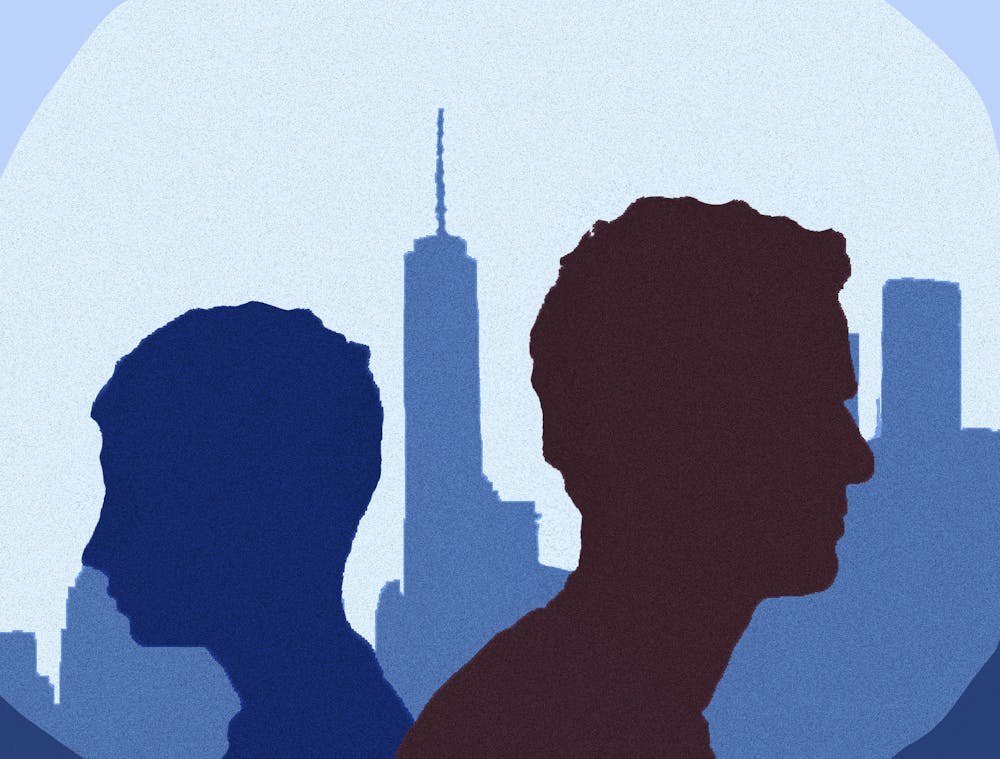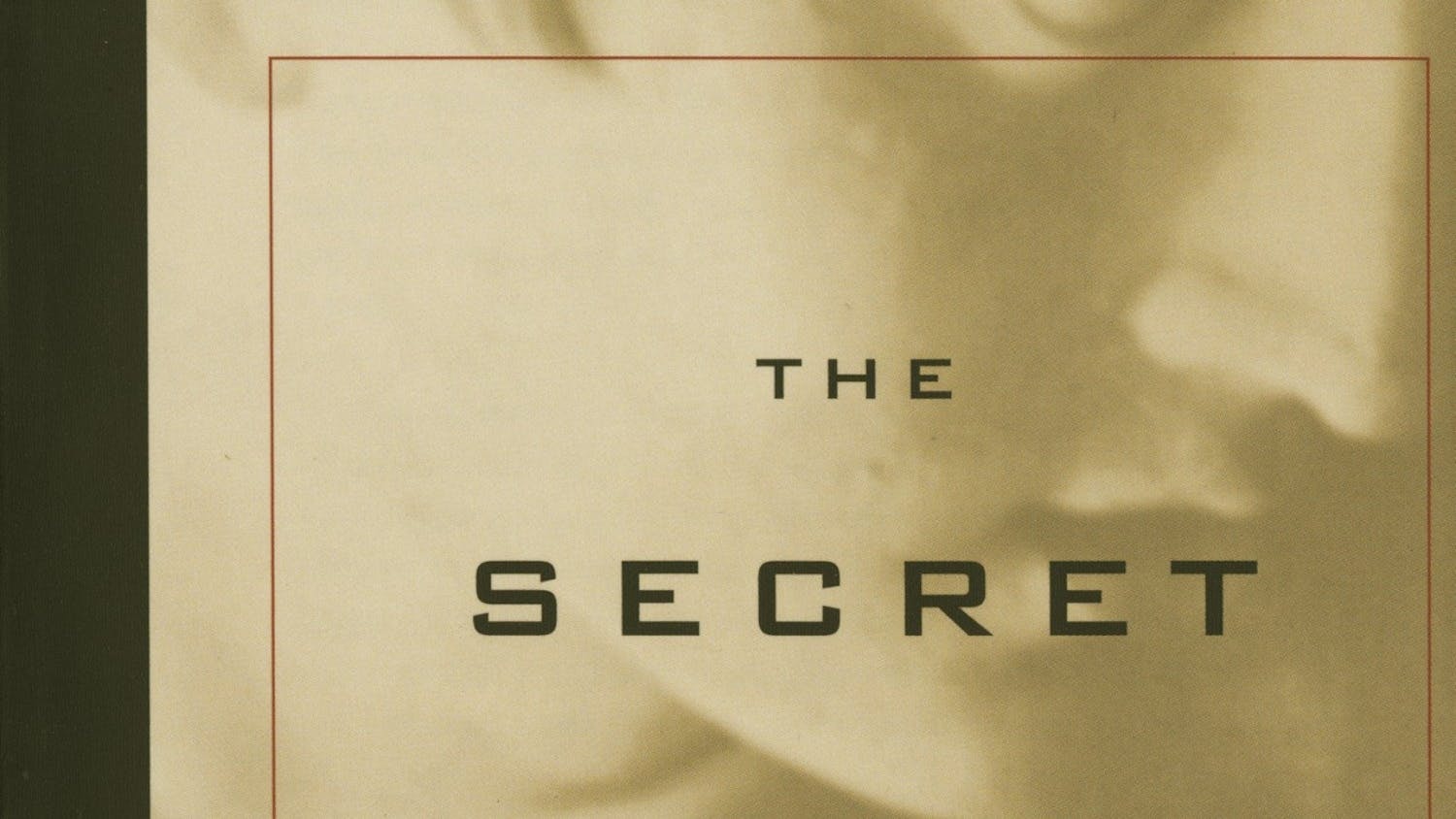Twenty-one years ago last Sunday, Americans and people from all over the world watched in horror as two planes collided into the World Trade Center. Soon after, a third plane hit the Pentagon in Arlington, Virginia. A fourth plane was overtaken but hijacked by the passengers and crashed in a field in Shanksville, Pennsylvania. Nearly 3,000 people were killed in the four coordinated terrorist attacks.
For many Americans, Sept. 11, 2001 was a day like any other. Parents dropped their kids off at school, employees reported to work and everyone went on with their usual Tuesday routine. For journalism professor Craig Davis, it was just a regular day working in New York City.
Originally from West Virginia, Davis was working in NYC as a director of client services for the New York digital team for Arnold Worldwide. On his way to work from his apartment in Hoboken, New Jersey, Davis took a ferry across the river to get to Manhattan. After the ferry, he took the bus as usual. While there, he witnessed the first plane crashing into the north tower of the World Trade Center at 8:45 a.m.
“I’m just sitting on the bus, and this lady in front of me goes ‘oh my gosh, a plane just hit the World Trade Center,’” Davis said. “I looked up and I saw it – I saw where the plane went in. It looked really small. I never thought in a million years it was a gigantic plane.”
Shocked and confused, Davis continued with his morning commute. The plane left a burning hole around the 80th floor of the 110-story skyscraper.
“The bus driver just kept driving the whole time because no one really knew what was happening,” Davis said.
While sitting on the bus, Davis saw the second building collapse. Still confused, he went into work.
“I saw big smoke from the other World Trade Center where the other one (plane) hit,” Davis said. “Then I got off the bus and went into the office.”
Once he got to his office, all of his coworkers were glued to the television. After nearly two hours of watching a nightmare unfold, Davis decided to go home to be with his wife. A commute that would usually take a mere half hour took the whole afternoon. Despite the huge population of people waiting to take the ferry, Davis said the environment was indescribable.
“When I stood in line for the water ferry, there’s thousands and thousands and thousands of people trying to get home,” Davis said. “No one’s goofing off or talking. Everyone is just kind of staring ahead … they couldn't believe that it happened. Everyone was silent.”
As the tragedy started to sink in for not only NYC, but the world, Davis said it was quite some time before a sense of normalcy was realized. As if the event wasn’t unforgettable enough, visual and odorous reminders remained.
“It didn’t go back to normal for a long time,” Davis said. “I remember three days out … you could still see the smoke. It smelled like an electrical fire and there was still stuff floating through the air.”
Davis said it took NYC to get its feet underneath them after 9/11, but the camaraderie and unity of the city was at an all time high.
“New York was really punched in the gut,” Davis said. “I mean, these are New Yorkers, and no one really messes with New Yorkers. There was some of that – coming together.”
Since 21 years have passed since 9/11, the majority of students at OU were not cognizant during the time, or even alive. Because of this, a sense of the gravity and impact of the event is lost without the younger generation witnessing the attacks. Davis said that it’s important people remember the loss and learn from it.
“Just realize that it happened,” Davis said. “No one thought in a million years this would happen and it did. I guess the lesson is live for the moment – you never know what’s going to happen.”
For Davis, that day changed the way he approaches and lives his life.
“This was a crazy day,” Davis said. “It made me think about things differently though – I totally changed my outlook.”
Additionally, Davis totally changed his career path. He said the tragedy reminded him what’s important in life.
“9/11 is partly one of the reasons why I decided to become a full (time) professor,” Davis said. “My boys were born in 2001, I was working, I was teaching, I was loving it, just doing all the stuff. When that happened, I realized maybe there’s some things that are more important in life to think about.”
After 9/11, there was still an overarching feeling of anxiety. The country was reminded how short life is, as well as how precious. Davis said that he had to find a way to deal with stress– acknowledging bad things happen but not living in fear.
“How you deal with stress is important,” Davis said. “There’s stress that you can avoid. Then there’s stress that you can clarify. But that stress is unavoidable. You have to develop a different philosophical attitude and from the day forward, my philosophical attitude was these things can happen. I don’t want them to happen, but I actually have to live with that. I can be pissed off about it, or I can live my life and be happy.”






